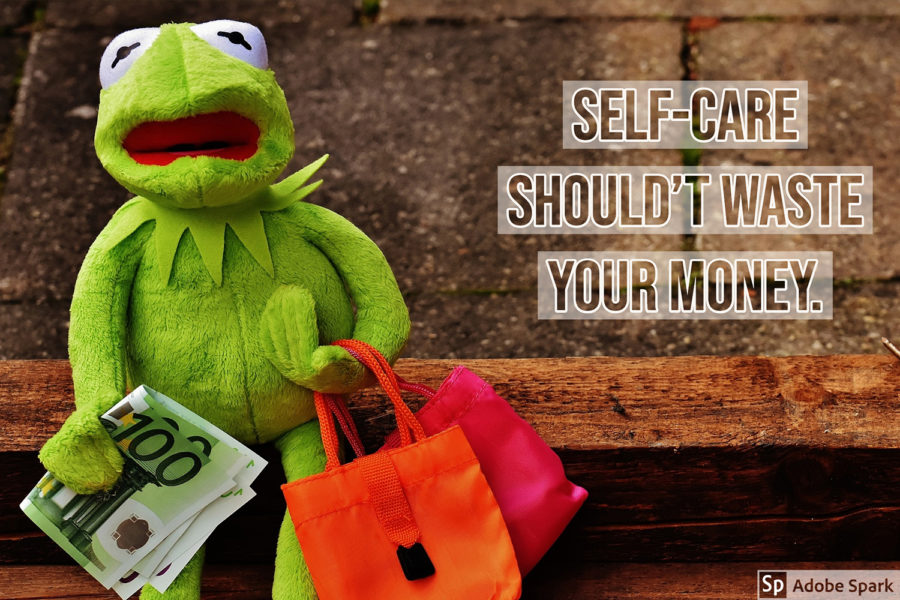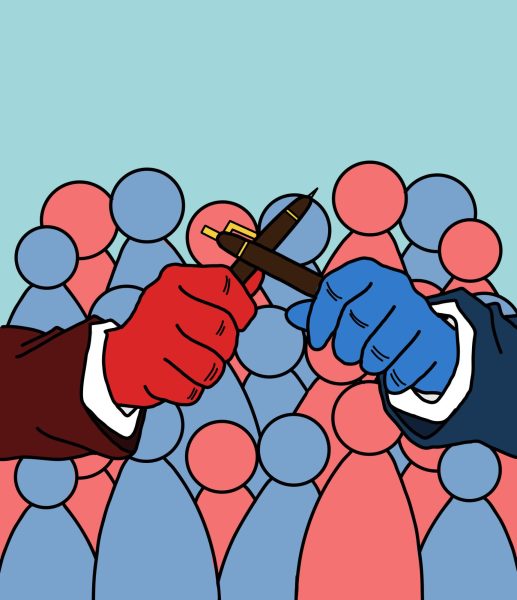‘Self-care’ buzzword vague, open to misinterpretation
Illustrated photo by Maria Garcia via Adobe Spark
“It is important to not get suckered into the idea that feeling better requires them to buy a company’s products to care for themselves.”
March 7, 2019
There’s a lot of misconceptions about what self-care actually is thanks to all the marketing and social media posts advertising various wellness products.
The term self-care is so vague that it is open for various interpretations. Many times when people think about what it is, it is associated with things like taking bubble baths, sleeping in, or binge-watching a series for an entire day. Because these things seem to be self-focused they are labeled “self-care” even if they are not really beneficial.
In our society, people tend to push themselves until they feel like they’ve reached a breaking point. People tend to push down their emotions, personal worries, and issues because they believe that there will be adequate time to address these concerns later. However, the truth is people tend to push things off with this mindset of “I’ll do it later,” This becomes an endless cycle that sooner follows until they reach a breaking point, and once that happens we finally take action to do some “self-care.”
This can either take the form of legitimate self-care or something that’s just a fun way to relax. In some cases, this breaking point should help people realize what intrudes on our personal lives.
There are diverse ways we can improve our lives and it all starts off with self-care, self-acknowledgment, and reflection. People should consider that self-care is not just about physical well being, but also their emotional and social selves. This can be approached in diverse paths. It can mean spending more time by yourself or surrounding yourself with people varying on your needs. Try to fulfill yourself with what you believe you need, including having new experiences and trying new things. Think about self-care as a way to support the diverse aspects of your being and not just as a way to reward your hard work.
Common misconceptions about self-care being about pampering oneself are commonly found in the media, making it difficult to find the ideal self-care techniques. This is usually seen in advertising by companies that represent their products as techniques to enhance the way you have “me time.” This can be by the purchase of a product or experience making the term for self-care meaningless. For example, research done in 2015 by Pew Research Center stated that millennials make further personal commitments to improve themselves than previous generations.
“They spend twice as much as boomers on self-care essentials such as workout regimens, diet plans, life coaching, therapy, and apps to improve their personal well-being. They’ve even created self-care Twitter bots,” according to an article by NPR.
In conclusion, as younger generations become familiar with the concept of self-care, it is important to not get suckered into the idea that feeling better requires them to buy a company’s products to care for themselves.








